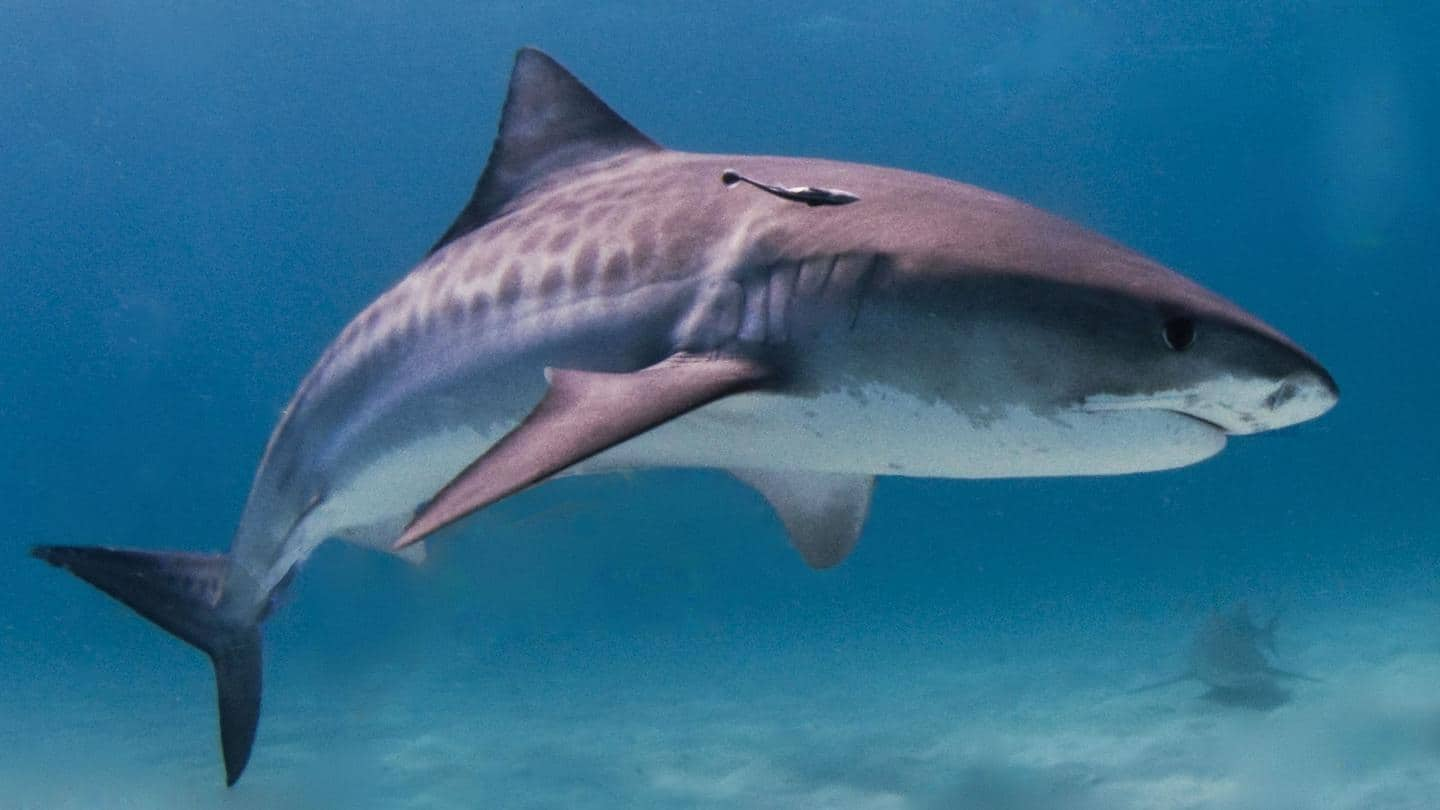
Over five lakh sharks could be killed for COVID-19 vaccine
What's the story
While the entire world is looking forward to positive news about a COVID-19 vaccine, global vaccination could mean the death of half a million sharks, an advocacy group has warned. According to Shark Allies, a California-based conservation group, some of the COVID-19 vaccines being developed currently use squalene, a natural oil found in the liver of sharks. Here are more details.
Substance
Squalene used to enhance vaccine effectiveness
Squalene is used in medicine as an adjuvant to increase the effectiveness of vaccines by generating a stronger immune response. This substance, which currently comes from the livers of sharks, is also used in cosmetics, machine oil, etc. Shark species that are rich in squalene include gulper and basking sharks. Incidentally, the two species are also classed as vulnerable.
Sharks
One tonne of squalene requires 3,000 sharks
Conservationists estimate that over three million sharks are killed every year for squalene, The Telegraph reported. It takes 3,000 sharks to make one tonne of squalene, estimates suggest. According to Shark Allies, vaccinating the world population with a single dose would require 2.5 lakh sharks. If two doses are required, which researchers say is more likely, five lakh sharks would be required.
Quote
'Harvesting something from wild animals will never be sustainable'
Stefanie Brendl, founder and executive director of Shark Allies, told The Telegraph, "Harvesting something from a wild animal is never going to be sustainable, especially if it's a top predator that doesn't reproduce in huge numbers." Brendl noted that it cannot be predicted how long the pandemic would continue or how many versions of a vaccine we might have to go through.
Quote
'Numbers of sharks taken for squalene could be really high'
"There's so many unknowns of how big and how long this pandemic might go on, and then how many versions of it we have to go through, that if we continue using sharks, the numbers of sharks taken for this product could be really high."
Alternative
Company producing synthetic squalene could offer solution
Meanwhile, Silicon Valley company Amyris, which has produced synthetic squalene for cosmetics for long, is now looking toward the vaccine industry. The company produces squalene through the fermentation of sugar cane using yeast. This method produces farnesene, which is then used to make squalene. John Melo, chief executive of Amyris, told The Telegraph that the synthetic substance is just as effective.
Deal
Talks with US regulator, pharma companies over synthetic squalene underway
Melo said he is in discussions with the US Food and Drug Administration to allow the use of synthetic squalene to be used as an adjuvant in vaccines. He added, "We're in negotiation now with three pharma companies, all of which are looking to buy significant volume to deal with supply chain limitations, specifically around scaling up a billion vaccines or more."